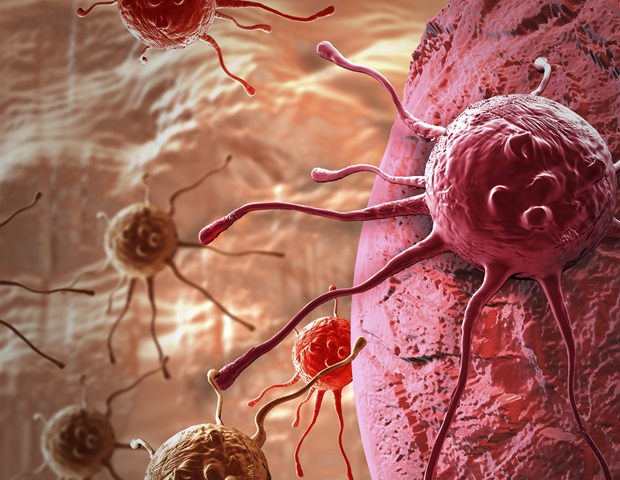
As the global incidence of cancer continues to rise, the complexity of the disease presents significant challenges to advancements in diagnosis and treatment. In this landscape, artificial intelligence (AI) has emerged as a powerful ally in predicting and detecting cancer cases. A groundbreaking AI tool, developed collaboratively by Brazilian and Polish researchers, promises to enhance this process by predicting tumor aggressiveness through the analysis of protein markers.
The innovative machine learning model can assess the aggressiveness of certain tumors by identifying specific proteins, generating a “stemness index” that ranges from zero to one. A score of zero indicates low aggressiveness, while a score of one signifies high aggressiveness. As the index increases, the cancer becomes more aggressive, more resistant to drugs, and more likely to recur.
Understanding Tumor Stemness
The concept of stemness refers to the degree to which tumor cells resemble pluripotent stem cells, which have the potential to transform into almost any cell type in the human body. As cancer progresses, malignant cells increasingly differ from their tissue of origin, exhibiting self-renewal and an undifferentiated phenotype.
Researchers developed the AI tool using data from the Clinical Proteomic Tumor Analysis Consortium (CPTAC) for 11 cancer types. The resulting protein expression-based stemness index (PROTsi) was tested on over 1,300 samples, including breast, ovarian, lung, kidney, uterine, brain, head and neck, colon, and pancreatic cancers.
Integrating Proteomic Data for Targeted Therapies
By integrating PROTsi with proteomic data from 207 pluripotent stem cells, the researchers identified proteins that drive the aggressiveness of certain tumors. These proteins could become targets for new therapies, contributing to both the advancement of clinical treatments and the personalization of cancer therapy.
The study’s findings, published in the scientific journal Cell Genomics, highlight the potential of this tool in clinical settings. “Many of these proteins are already targets of drugs available on the market for cancer patients and other diseases,” explained Professor Tathiane Malta of the Ribeirão Preto Medical School at the University of São Paulo, Brazil. “They can be tested in future studies based on this identification.”
Historical Context and Previous Research
Professor Malta, a leading researcher in the study, has a history of significant contributions to the field. In 2018, she was the first author of a paper published in Cell, which introduced a stemness index to measure the similarity between tumor samples and pluripotent stem cells. This earlier work relied on gene expression data from The Cancer Genome Atlas (TCGA) in the United States.
“Now, we’re working with the CPTAC database, based on proteomics, and we’ve updated our work with analyses of protein, a functional molecule that can be applied to treatment possibilities and clinical application,” Malta stated.
Validation and Implications
During validation, PROTsi demonstrated consistent performance across multiple datasets, effectively distinguishing between stem and differentiated cells. It showed particular predictive ability in uterine and head and neck cancer cases, and was more effective at differentiating higher-grade tumors in adenocarcinoma, uterine, pancreatic, and pediatric brain cancer samples.
Renan Santos Simões, co-first author of the article, emphasized the significance of these findings. “Science advances slowly, carefully, and is built by many hands. It’s gratifying to realize that we’re contributing to this process. That’s what motivates us: knowing that what we do today can make a real difference for patients, improving treatments and quality of life,” he said.
The Global Cancer Burden
On World Cancer Day, February 4, the World Health Organization (WHO) highlighted the alarming statistic that 40 people are diagnosed with cancer every minute worldwide. Cancer remains one of the leading causes of death, particularly affecting younger populations. A 2023 study in BMJ Oncology reported a 79% increase in early-onset cancer incidence among adults under 50 between 1990 and 2019, alongside a 28% rise in cancer-related deaths.
In Brazil, the National Cancer Institute (INCA) estimates 704,000 new cancer cases annually from 2023 to 2025. The most common cancers include non-melanoma skin cancer, breast cancer in females, prostate cancer, colon and rectal cancer, lung cancer, and stomach cancer.
Future Directions
Looking ahead, Professor Malta and her team are testing additional computational models to further refine predictions. “We sought to build a model that can be applied to any cancer, but we found that it works better for some than for others. We’re making a data source available for future work,” Malta noted.
The development of PROTsi represents a significant step forward in cancer research, offering a promising tool for clinicians and researchers alike. As AI continues to evolve, its integration into medical research and treatment holds the potential to revolutionize cancer care, offering hope for more effective and personalized therapies.




